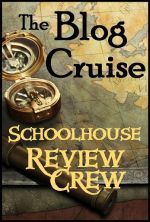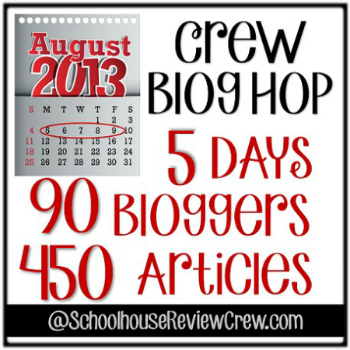What we received
Human Anatomy and Physiology Textbook
Begining with a short history of medicine and following into human anatomy from a Christian perspective.
- Author by Jeannie Fulbright and Brooke Ryan, M.D.
- Hardcover
- ISBN 978-1-935495-14-7
- Pages 265
- The book is divded into 14 weeks of lessons:
- Introduction to Anatamy and Physiology. Cells, DNA,
- The Skeletal System (bones, ligaments, joints)
- Muscular System (tendons, musckles, cells, muscle types)
- Digestive and Renal Systems
- Health and Nutrition (nutrients, water, carbs, proteins, Fats, Vitamins, Minerals)
- Respiratory System (nose, lungs, asthma, diaphragm)
- Life in the Blood (veins, arteries, plasma, red and white cells, platelets)
- Cardiovascular System
- Nervous and Endochrine Systems
- Nervous system Extended
- Senses (smell, taste, sight,)
- The Integumentary System
- Lymphatic and Immune Systems
- Growth and Development
- Each chapter has a practical hands on experiment to reinforce learning.
- These books are a part of Apologia's Young Explorer's Series and uses the Immersion Approach to learning. Jeannie Fulbright the author explains that by examining one topic fully children go deeper so that they can really know, understand learn more fully, this in turn builds their confidence as well as giving them the tools to actually know science via the terminology and processes.
Human Anatomy Notebooking Journal
- Softcover spiral bound journal
- Contains 202 pages and an appendix of 66 pages.
- Consumable and intended for a single student use in grades 3/4th level and up.
- ISBN 978-1-935495-15-4
Human Anatomy Junior Notebooking Journal
- This journal is for beginning writers. It is divided into 14 lessons.
- Softcover spiral bound journal
- It contains 230 pages
- appendix of 66 pages. The appendix contains all the mini book cut outs and templates to complete the assignments.
- Consumable and intended for a single student use.
- This journal is similar to the and intended for use by younger students in years K to 2/3 grade level.
- ISBN 978-1-935495-47-5
Differences Between the Journals
- The juniour journal contains colouring in pages with the scriptures on them, the older journal does not have these pages
- Juniour Journal has less pages for notes.
- Juniour Journal contains lines with height spaces to make writing easier. The lines are also wider apart.
- Older Journal uses crossword puzzles for the vocabulary exercise where as the younger journal uses matchbook mini books.
Human Anatomy and Physiology MP3 Audio CD
- The CD contains the complete audio recording of Exploring Creation Human Anatomy and Physiology Textbook read by the author Jeannie Fulbright.
- The CD is not in standard format. The audio files are in MP3 and you will need an MP3 compatable player or computer to listen to it. You can download a sample on the Apologia website.
Jeannie Fulbright is a mother of four and the author of Apologia’s Young Explorer Series. She is a regular speaker at numerous conventions, conferences, women’s retreats, and other events on all topics related to parenting, marriage and family, homeschooling and science. After her homeschool journey began, Jeannie discerned an immense need for Creation-based, scientifically sound, engaging, and easy-to-use science curricula. And so the Young Explorer Series was born.
Website | Twitter | Facebook | Pinterest
How we used it
One of the many curriculumns I've had my eye on over the years is Apologia. I really love the idea of teaching science from a Christian world view. Apologia's mission is "To publish homeschooling curricumlum and resources and host online classes to help families learn, live and defend the Christian faith." I was thrilled to have the opportunity to look over and begin using their Exploring Creation with Human Anatomy and Physiology.
At times I've been anxious about teaching the sciences as some of the fields are fairly complex. One of the most inspirational quotes that has given me the confidence to continue home educating is the following statement I read by Dr. Jay L. Wile "Can I teach high school science? NO As your student gets older, your role changes from teacher to fellow learner." One of the things I've appreciated about using this series is the conversational tone that the author uses. She speaks to the person reading the book and as such both Nathaniel and I have learned some interresting things about the human body. Human biology has long held my interest and I've always enjoyed reading more about it and it's amazing complexity.
Exploring Creation with Human Anatomy and Physiology is the sixth book in the Young Explorers Series. Your journey begins with a short historical introduction to anatomy and physiology. From here you move onto the study of the single cell which is the fundamental building block of the human body. It then progressively teaches through the specific bodily systems such as the skeletal system, muscular, digestive, nervous, respiratory systems et cetera. Integrated into the learning is caring for these systems via life style, nutrition and finally all this is reinforced with hands on activities and notebook assignments.
The textbook is divided into 14 lessons. Each of the lessons have been designed to be done over two weeks therefore covering 28 weeks of school. IF you purchase the Notebooking Journal the weekly reading and suggested notebook assignments have been prescheduled out for you. In the sample above for Lesson one you can see four days worth of science. The readings have been scheduled with narration breaks. Narration is a Charlotte Mason method to encourage the student to pay attention, think, process and retain the knowledge they are learning. The narration breaks are clearly noted in the textbook.
Interspersed throughout the reading in the textbook are beautiful colour illustrations clearly illustrating what is being taught. Applicable vocabulary words are printed in bold type face. The Try This! segments are hands on activities helping to reinforce learning.
Experiments to enhance understanding (and some are edible making them a true hit around here especially as they are created using highly desirable items 😀) are interspersed throughout the book. In the introduction section of the textbook is an itemised list of what is needed for each of the experiments and Try This! sections. The items are listed by lesson and most of the items used are common household items we had on hand.
The Notebooking Journal and Junior Notebooking Journals are very similar and contain
- Suggested schedule
- Colouring pages
- Notebook pages to record interesting facts
- Review Questions
- Assignments
- Scripture Copywork (print and cursive samples to copy)
- Vocabulary Crosswords
- Project Pages
- Miniature Books
- More to Explore (extra experiments, biblical insights, and book suggestions)
- Field Trip Sheets
- Final Review
- Appendix - contains all the full colour mini books, and personal person resources needed to complete the journal.
The journals are designed to enhance learning and as such you are encouraged to choose which activities to do and which ones to leave so that learning does not become a chore.
The audio CD was a surprising addition we enjoyed. It is beautifully presented and Jeannie reads clearly making listening a pleasure. We used the AEM MP3 player provided. This made selecting the correct track for listening super easy as there are over 400 files on the disk.
It looks like a mini iPod on your screen and works in the same manner. We really ejoyed the music which enhanced our listening pleasure. For example there was music in the transition between history of Anatomy and Ancient Egyptians. The music had an Egyptian flare.
The CD contains the complete audio recording of the course Exploring Creation with Human anatomy, it is not always verbatim as on occasion some of the words or sentences have been altered slightly to make it easier to listen to. The CD is a great compliment to the book and especially helpful if you are not familiar with the pronounciation of the terminolgy in human anatomy.
Apologia has provided a section called Book Extra's which is located on their website.
You will need to create your account and log in. Your homepage will display the books your have registered. Each textbook comes with a special code word that you use to add to your course list. Once added you click on the course title which opens a page full of links which Apologia have curated to enhance each of the lessons within the book. Each link has a short discription of what you will find. For example here is a video they shared about skull bones. I really like these extra's as all the work has been done for me, and I know that the information is correct and I do not need to pre-check any of it.
Connect with Apologia on Social Media
Blessings
Chareen















































